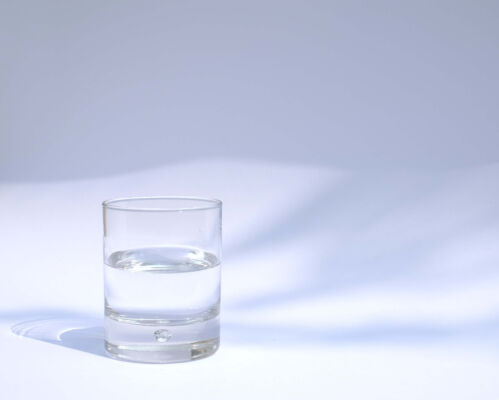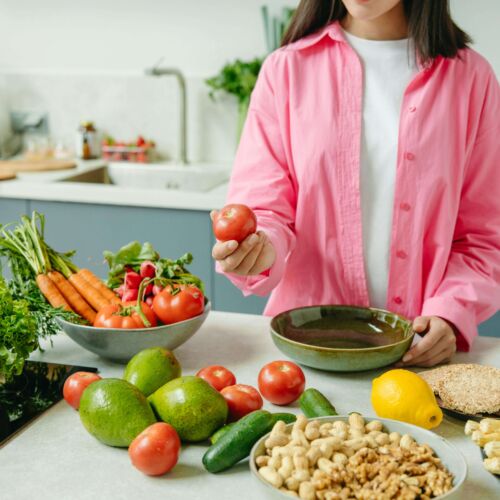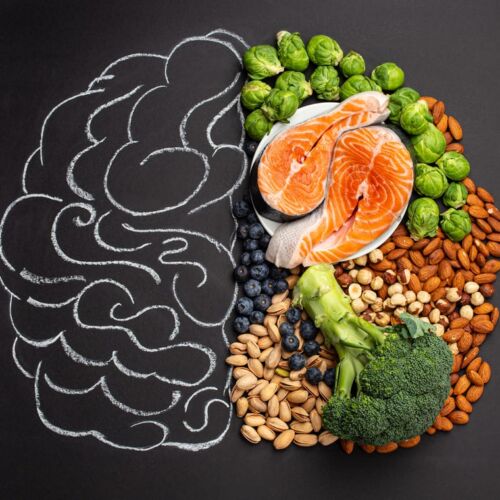How to Improve Hydration in the Summer Months
by Kristen Hruschak, RD

The snow has finally melted and we can look forward to long days of sunshine and warm weather. With this warm weather comes an important health reminder from most health professionals – remember to stay hydrated! Sometimes it can be tough for older adults to drink enough fluids to stay hydrated. It can also be tiresome for caregivers to try to encourage drinking throughout the summer months. In this article, I will share why drinking enough is important, and my tips for caregivers on how to improve hydration in the summer months.
Why is Hydration Important to Older Adults?
Older adults are at Greater Risk for Dehydration
With age comes a reduced sense of thirst. This is a result of the aging process hindering the body’s ability to respond to cellular dehydration and triggering the need for rehydration(1). Most people will still benefit from reminders to drink and being offered fluids at meal and snack times.
Another risk factor for not drinking enough is incontinence. Oftentimes, those who are incontinent will stop drinking before sleep. This is so that they do not need to wake up to use the washroom, or risk incontinence overnight. Most often incontinence can be treated by using incontinence products as well as seeing a Physician for more specialized assistance.
The ability or lack of ability to self-feed can alter a person’s ability to take in enough fluids. For example, someone with arthritis in the hands and wrists may have trouble opening their beverages in a hospital setting. Unless someone opens these, the person will effectively not be able to drink anything. Another example is someone with dementia in a long term care setting who has lost the ability to feed themselves. They rely on a caregiver to give them food and drink. This can, unfortunately, mean that drinking enough is dependent on someone else offering fluids consistently throughout the day.
Consequences of Dehydration in Older Adults
There are many early warning signs of dehydration including thirst, fatigue, dark-coloured and strong-smelling urine, and a dry mouth. Some more serious consequences of dehydration include:
Constipation
Defined as three or fewer bowel movements per week, having stools that are hard/difficult/painful to pass, or an inability to completely empty bowels(2). This is because the large intestine naturally absorbs water from the stool. So, if you are not drinking enough, the stool will be harder and more difficult to pass.
Electrolyte Imbalances
Electrolytes include sodium, potassium, chloride, calcium, phosphorus, and magnesium. The levels of these electrolytes in your body can change depending on the amount of water in your body. This level can get out of balance if you are not drinking enough.
Delirium
Can include trouble thinking, remembering, confusion, or disorientation, among other cognitive changes. Dehydration is a contributing factor to delirium, along with decreased blood volume.
Urinary Tract Infections
We naturally have bacteria within the urinary tract. Our bodies rely on us to drink enough to flush out these bacteria regularly to not grow out of control.
Wounds Take Longer to Heal
It may come as quite a surprise, but fluids are crucial for the proper healing of wounds. Drinking well helps to improve blood volume, and delivery of oxygen and nutrients to the wound bed(3).
Tips to Improve Hydration in the Summer Months
Encourage intake of fluids your loved one enjoys
People often think that water is the only fluid that counts towards hydration. But all fluids count! A fluid includes anything liquid at room temperature. So if your loved one dislikes water but enjoys drinking decaffeinated coffee or sparkling water, use that to your advantage.
Hydrating Foods
Did you know that some foods can be almost entirely water? Jelly desserts, pudding, ice cream, fruits like watermelon and grapes, yogurt, apple sauce, and soups are just to name a few. Encouraging your loved one to eat these will help to improve hydration.
Water can be plain – improve the flavour by making your own flavoured waters
Try experimenting with different flavour combos. Some examples are lemon and lime, apple slices with a cinnamon stick, berries and mint, or rosemary with ginger. Let the mix sit overnight in the refrigerator to maximize the flavour.
Water bottles with reminders
Several stores now sell water bottles with reminders written on the outside. This can be reminders of how much you should drink by a certain time of day or volume reminders. This can be helpful for those who just need a reminder to drink throughout the day.
Where Can I Get More Help?
If you would like to learn more ways to improve hydration during the summer months and what you need to know about caring for your aging loved ones from a dietitian, I am happy to help! I offer an Aging at Home Program for caregivers which includes in-home, in-office, and virtual assessment services as well as meal planning. My ultimate goal is to ensure you and your loved ones are getting the nutrition needed to stay happy, healthy, and strong, for as long as possible.
Read more about my services here: Virtual and In-Person Nutrition Counselling.
If you would like to book your free 15-minute discovery call with me, you can do so here.
Book Your Free 15-Minute Discovery Call
Check with your insurance provider to see if Registered Dietitian Services are covered through your plan or health spending account. Dietitian services are also tax deductible!



